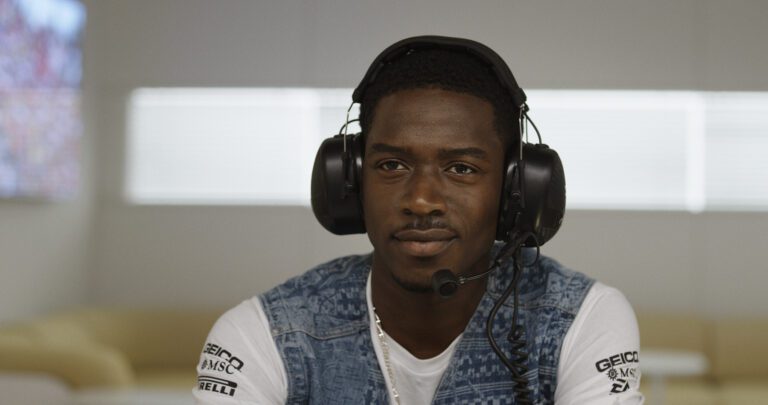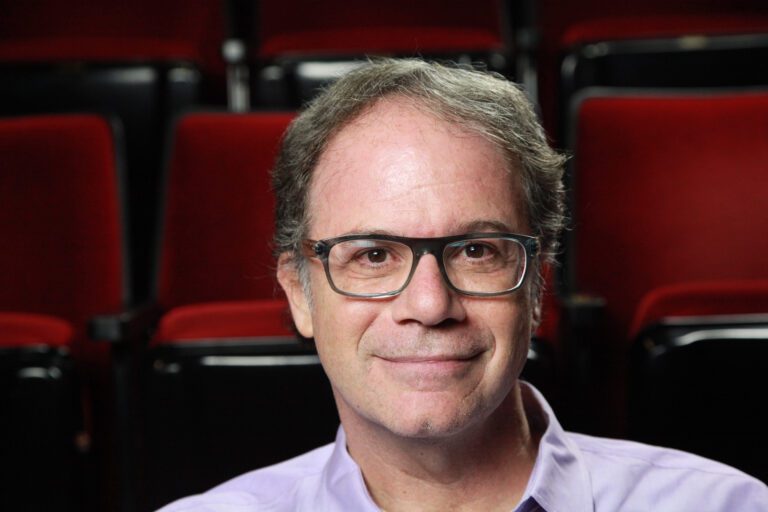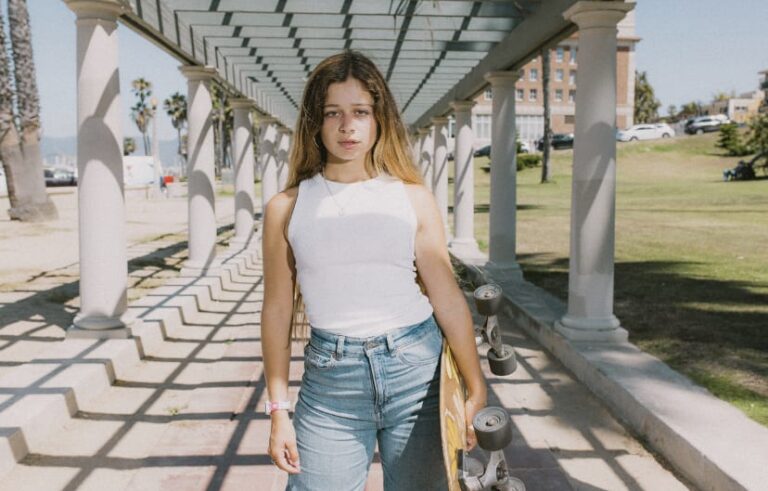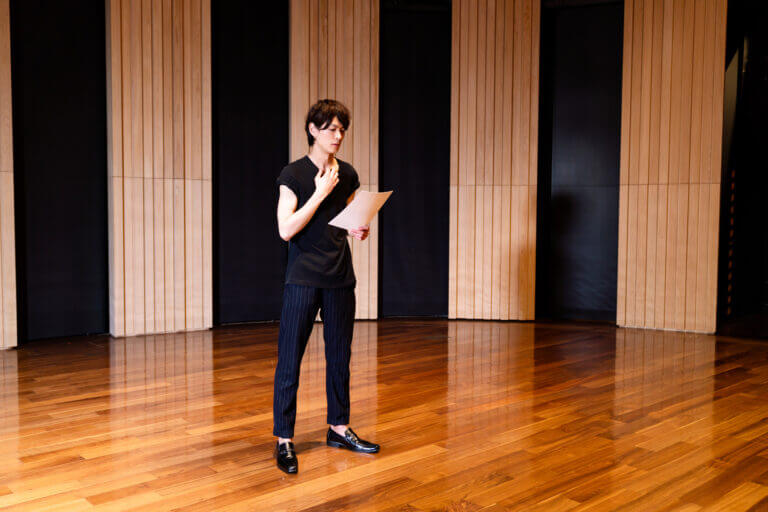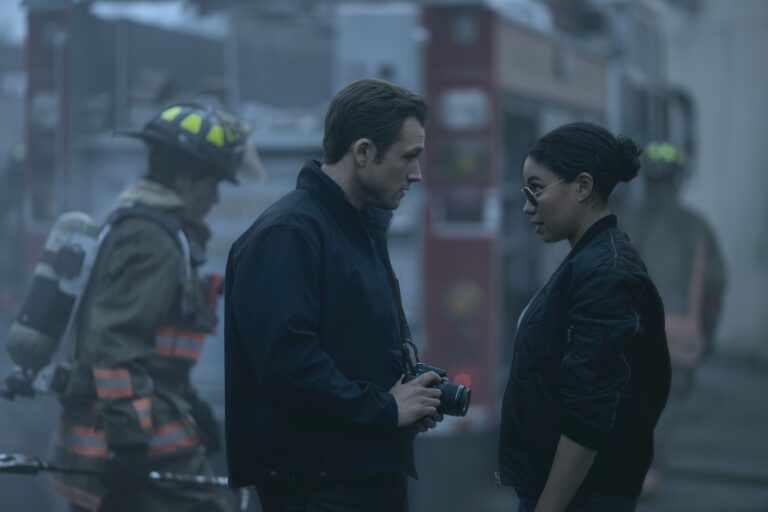Casting directors Chelsea Ellis Bloch and Marisol Roncali brought their expert eye when casting the adaptation of Laura Lippman’s novel Lady in the Lake for Apple TV+. The mini-series stars Natalie Portman as an aspiring reporter in 1960s Baltimore investigating the murder of a young woman, Cleo (played by Moses Ingram). It delves into themes of race, religion, marriage and identity during a time of political and social upheaval.
How early in the process did you come on board?
Ellis Bloch: We came on this one very early when Alma was still writing the episodes. She wanted to start talking (casting) ideas so that the characters had faces or voices that she could write to.
Several actors from Honey Boy — like Noah Jupe and Byron Bowers — appear in Lady in the Lake. Was it natural for Alma to turn to actors she’d worked with previously?
Ellis Bloch: Byron Bowers, who plays Slappy (Cleo’s husband), was also in Honey Boy. Alma was able to write the character for him because he is also a comedian and was able to bring his voice to it, which I think helped the Slappy character.
A lot of people who ended up cast in Lady in the Lake were people we auditioned for Honey Boy, so Alma was familiar with a lot of their tapes, who they were, and their work. Y’lan Noel — who plays Officer Platt — was somebody we loved for Honey Boy, but Byron ended up getting that part. Y’lan was somebody Alma knew and had been talking to previously.
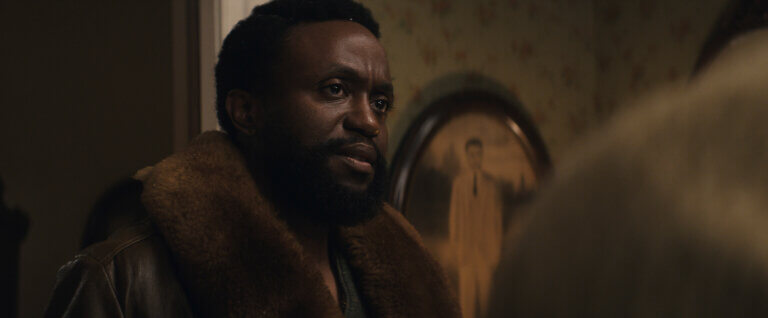 Photo courtesy of Apple TV+.
Photo courtesy of Apple TV+.Were there any casting choices that you’re particularly proud of, or that had a unique story behind them?
Ellis Bloch: We were so happy to cast Dylan Arnold (Oppenheimer), who killed it in the role of Stephan Zawadzkie (the accused killer). We also did the local casting in Baltimore and one of the characters I love the most from that is Mr. Weinstein, the jewelry guy. The actual guy who plays him is a jewelry guy who lives in Baltimore.
We did street casting because Alma comes from the documentary world, so she wanted real people, real faces. The car salesman in the show was somebody Alma bought a car from. The jewelry guy — we scoured the streets of Baltimore just going in stores, going in bagel shops, going in different places. We went into this jewelry shop and he was in there. We were like, “do you want to audition?” And he just looked at us like we were crazy, but he was like, “sure, let’s do it.” He did such a good job and was so fun.
When Lupita Nyong’o had to bow out from playing Cleo, how did Moses Ingram come to take her place, and what made her such a great fit for the role?
Ellis Bloch: On this one, the accent — because it was set in Baltimore — was very important. There was a dialect coach on the project and everyone went through all the training and whatnot. When we had to recast Cleo, Moses Ingram just fit in flawlessly because she is from Baltimore and knew the Baltimore accent. Even though she came in a bit more in the middle of the project, on her first day, everybody was blown away because she fit in.
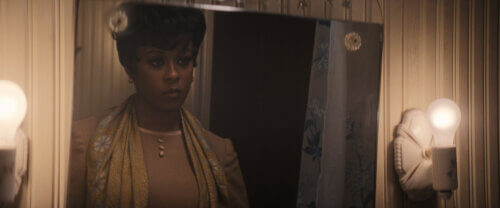 Photo courtesy of Apple TV+.
Photo courtesy of Apple TV+.What was the biggest challenge you faced while casting this project, especially considering the difficulties of casting during COVID-19?
Ellis Bloch: The challenge was not about a particular role, it was COVID and the vaccine. When we cast this show, it was peak COVID. Apple had just passed the mandate for the second vaccine about a week before we started the process. That added a lot of extra time for the casting process because you had to cast the actors, they had to be tested, and tested again for the fitting.
Normally, if you were down to the wire, you could cast somebody the day before. On this one, you had to cast them four to five days before to get the testing done if they were flying to the location. Unfortunately, we did run into several situations where the actor ended up testing positive, so we had to recast. One actor unfortunately tested positive the day they were flying, which was two days before their shoot. It was a scramble to recast that role and get them the rapid testing to be able to do wardrobe in a very short amount of time.
Marisol Roncali: It was a difficult time because, on top of COVID, every studio had a different vaccine mandate. It was more about the logistics of an actor booking one job with one kind of COVID mandate and then booking our project, which had a different mandate.
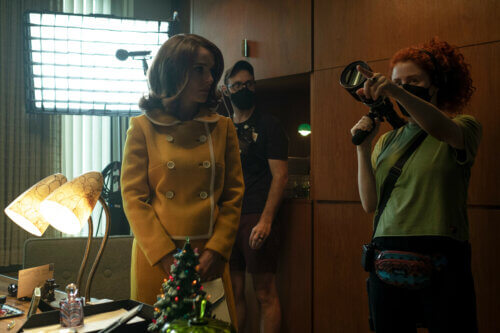 Photo courtesy of Apple TV+.
Photo courtesy of Apple TV+.Let’s talk about the audition process overall. When actors audition for you, are there any do’s and don’ts you have for them?
Ellis Bloch: We like it when people come in having made their own choices in how they interpret the character. We might adjust just to see if they can change it up. The ones that stand out are those who make distinct choices and interpret the character in their unique way. Even if they don’t get the role, they stay on our minds for future projects.
Is there a project you cast that made people in the industry take notice of your casting abilities?
Ellis Bloch: One project people always seem to mention is Emily the Criminal. We loved working on that one and Aubrey Plaza was amazing. I had the privilege of casting her on Child’s Play a few years before, and she was an incredible partner on that one as well.
Roncali: Emily the Criminal was a million-dollar movie, so it was very much SAG scale. The process was about auditions, then director auditions, then hiring and making very simple deals. But that is the one project that people bring up to us, even though it was one of the smallest ones we’ve done.
Then there is DC, which is the opposite of small. You cast Blue Beetle. How was that?
Roncali: We chased Blue Beetle. For me, it was important to cast the first Latin superhero film. We chased it, tracked it, stayed on it. We met everybody, we followed up. But more than anything, regardless (of whether it’s big budget or small), it’s about finding projects we like.
Chelsea started at Fox on the executive casting side and I’ve been on the other side with work on Star Wars and Deadpool, which are fun. Having a big database means you can find different actors for all types of movies. When we cast The Crow movie with Bill Skarsgård, we were reading actors that had the right physicality. For other roles, we’ll read actors to see what their comedic range is.
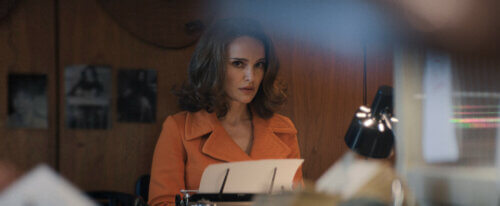 Photo courtesy of Apple TV+.
Photo courtesy of Apple TV+.Casting Silent Night must have been a unique experience with no dialogue. How did you approach that, and how does it compare to casting other types of films?
Roncali: We are big fans of John Woo so we were excited to do this one, but the process was a little different. It was more about getting a certain level of actor and then going off the material they already had. It was taking their demo reels and expanding it by going through their filmography and renting those movies or going to that specific episode, then cutting something together that’s appropriate and under a minute. Then we’d set up meetings with the producers and the director and his team.
Ellis Bloch: We’ve been fortunate enough to work on a variety of movies that involve casting actors that are “offer only” to run around the streets of Baltimore, like we just did with Lady in the Lake.
We did a movie that just premiered at the Toronto Film Festival called Shell that Max Minghella directed and it was really fun to fill out those roles with cameos. Even though everybody was pretty much booked for a day or two at scale, everybody was so happy to come to set and play.
We worked on the upcoming new Dora movie (Dora and the Search for Sol Dorado) and Alexander and the Terrible, Horrible, No Good, Very Bad Road Trip, and both were about reading and reading and reading tons of actors and actresses. I think we get the most joy out of the variety that we get to cast.
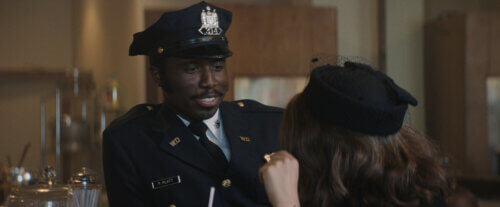 Photo courtesy of Apple TV+.
Photo courtesy of Apple TV+.Could you each share the casting project that was the most rewarding or meaningful to you?
Ellis Bloch: I would probably say Honey Boy. It was the first movie that I had done on my own as the casting director. I thankfully came out of an office where I worked for John Papsidera. He was like this godfather to me and said, “go do it.”
I was doing it on my own from start to finish finding Noah, then seeing him read with Shia and doing the chemistry reads, and being able to tell Noah he got the role — that whole process was just amazing. We didn’t tell Alma or Shia at the time that Noah was British, so that was kind of a surprise to them once they found that out. But they already were in love with him, so it worked out well.
I got to know his mom and have become close with the family. Noah is now a young man, which is crazy! Going through that process and feeling like you helped someone get to that next level, that next step, is incredibly rewarding.
Roncali: I had the privilege of working on Star Wars eight — the Ryan Johnson Star Wars, and we were very fortunate to have autonomy when working on projects. I would say casting Kelly Marie Tran was special. After the success of JJ Abrams’ reboot, everyone wanted to be in Star Wars. The role was a female, open ethnicity, early thirties, and everybody in the world read. I’m not joking. We’ve traveled all over the world because nothing was allowed online. We had paper sides which the actors could only have for an hour.
The process was so intense, and the scale was huge. Finding someone from an Asian female improv group at UCLA who was competing against every movie star was exciting. She was working at a temp agency and had a small agent. It was so beautiful. The casting completely changed someone’s life.
I worked on Deadpool 2, which is how Chelsea and I first met. This is why the audition process is so important: Zazie Beetz had auditioned for Star Wars and we loved her from that and that’s how we knew to bring her in for Deadpool. At the time, the first one was very successful, so there was pressure to get someone really big for that co-female lead from the business side. We brought Zazie in and they just killed it. She won that audition and Ryan was so happy and it was such a great feeling.
Thinking about joining Casting Networks? Sign up for a free trial today!
You may also like:


